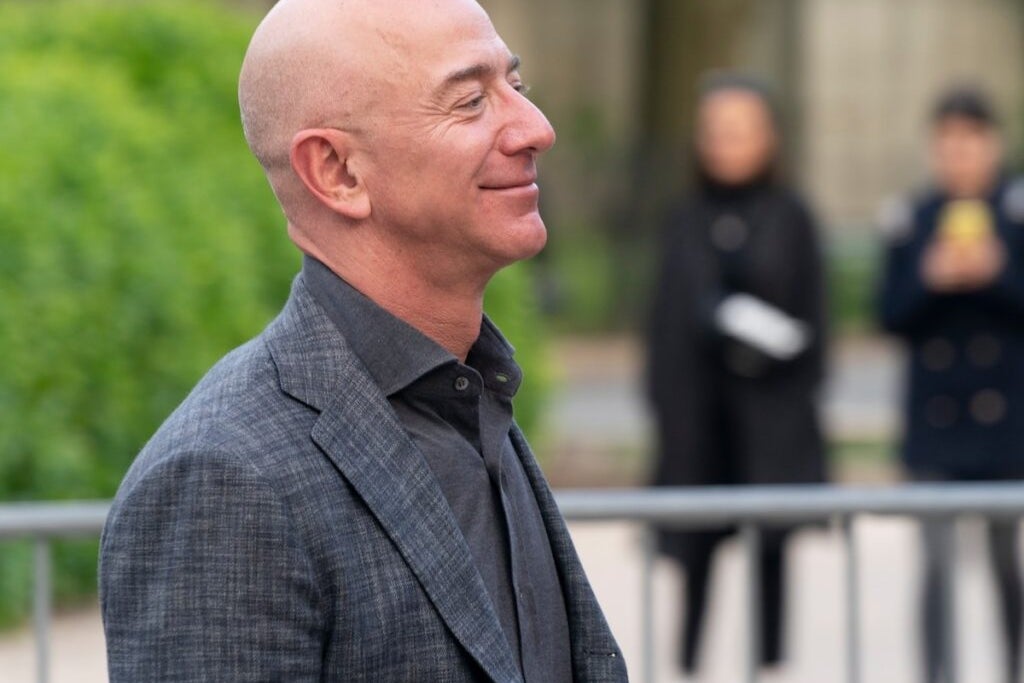Jeff Bezos Ensured It Was Always Day 1 At Amazon: 4 Key Principles That Helped Him Forge A $2 Trillion Empire
Jeff Bezos says Amazon’s rise can be traced to four simple rules. In a 2009 video recorded after Amazon announced its purchase of Zappos, the founder distilled the company’s playbook to four particular principles that guide its success.
Bezos’ four principles were, “Obsess over your customers,” “Invent on their behalf,” “Think long term,” and “It’s always Day 1.” The principles carried a business that grew from two people packing books in a garage, with Bezos labeling packages and driving them to the post office while his then-wife, MacKenzie Scott, sealed boxes, into a company valued at around $2.3 trillion today.
Obsess Over Customers
Bezos’ first rule, which is to obsess with customers, asks employees to begin with customer needs and “work backwards,” a tenet repeated across his shareholder letters and the company’s leadership doctrine. In Amazon’s own words, leaders “start with the customer and work backwards,” and true customer obsession is one of the core Day-1 defenses.
Invent On Their Behalf
“Invent on their behalf” codifies Amazon’s expectation to “Invent and Simplify,” accepting that bold bets will sometimes be misunderstood. Employees are told to “expect and require innovation,” scan widely for ideas, and make swift decisions on correctable matters.
Think Long Term
Bezos consistently emphasizes long-term thinking as a core Amazon value, urging the company to look further ahead than most competitors. Former Amazon executive, Bill Carr, in an interview with Forbes’ Carmine Gallo, revealed that Amazon spent a decade on research, development and content acquisition to build Prime Video, which now has more than 100 million viewers.
Carr says, “Having that long time horizon is critical if you want to build something big and enduring.”
Many companies abandon ideas if they don’t produce returns within a quarter or a year, but, as Carr notes, “Amazon will stick with an initiative for five, six, seven years — all the while keeping the investment manageable, constantly learning and improving — until it gains momentum and acceptance.”
‘It’s Always Day 1’
Jeff Bezos attaches his 1997 shareholder letter to every annual report, framing Amazon’s ethos as it was on the first day. “Day 1” — “This is Day 1 for the Internet… and, if we execute well, for Amazon.com,” says a popular line from the letter.
Amazon treats Day 1 as both culture and operating model, keeping the customer at the center of every decision. As AWS’s Daniel Slater notes, teams work backward from customer pain points, stay curious and nimble and accept smart failures to learn faster and better “surprise and delight” customers.
Others have echoed parts of the formula. Warren Buffett’s long-horizon mantra remains a lodestar for builders who favor patience over fads.
Bezos’ own letters offer more gems. These include the bar-raising hiring questions he urged interviewers to ask and his reminder after Amazon’s stock once cratered that “the stock is not the company.”
Read Next:
Photo Courtesy: Lev Radin on Shutterstock.com


